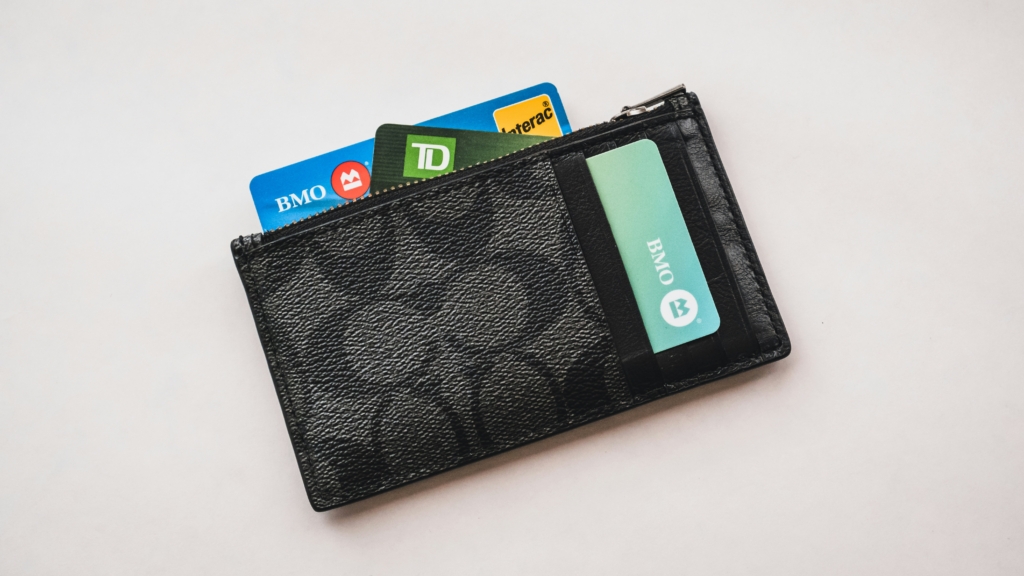How to Get an SBA Loan With Bad Credit

Build strong business credit
with your EIN

Small Business Administration (SBA) loans are the gold standard for business loans. They have a huge range of available loan amounts, longer than average repayment terms, and artificial ceilings on their interest rates.
However, like many types of business financing, they can be hard to qualify for if you don’t have a good credit score. Here’s what you can do to increase your chances of getting an SBA loan with bad credit.
Know Your Personal Credit Score
Before you apply for any credit account, you should have a good understanding of your credit score. It’ll guide you towards the ones that make the most sense for you and help you set expectations for your chances of qualifying.
Even though SBA loans are a type of small business funding and not a personal loan, the lenders who provide them typically check your personal credit. The requirements vary between lenders and programs, but generally aim for a FICO score of at least 640.
For context, FICO scores range from 300 to 850, and the national average is around 718. A score of 640 is generally considered a “fair” score. It won’t win you any points, but you should still be able to get an SBA lender to consider your application.
To get an accurate picture of your personal credit score, you should get a copy from each major credit bureau. There can be differences between them, and you never know which one lenders use.
You can get a free copy of your FICO score using your Experian credit report directly from the credit bureau, and Discover offers a free copy of your FICO score using your TransUnion report.
Unfortunately, you’ll probably have to pay to get one from Equifax unless your credit card provider or bank lets you access it. Their ID Patrol™ service shows you your Equifax FICO score for $16.95 per month.
Apply With Multiple Lenders
It’s important to acknowledge that the SBA rarely issues loans directly. Instead, they usually partner with lenders and insure a portion of their loan balance. If a borrower ever defaults, their lender can recover most of their losses from the SBA.
For example, if you take out a $500,000 SBA express loan, the SBA may insure up to 50% of the balance. That makes the risk to the lender much lower than a typical loan, incentivizing lenders to issue more SBA loans.
That means most of the underwriting requirements are up to the lender. Notably, the SBA doesn’t always force lenders to require any particular personal or business credit score.
As a result, there can be significant variations between what they ask of borrowers. You might be able to convince one to work with you despite having poor credit when others would turn you away.
If you know you’re going to struggle to qualify for an SBA loan because of your personal or business credit scores, don’t stop at just one application. Apply with multiple different lenders before you decide to resort to more expensive options.
It often helps if you have a good relationship with a bank or loan officer, so consider starting with an institution you’ve worked with before, if possible.
Apply for SBA Loans With Less Strict Requirements
The 7(a) loan is the SBA’s most popular program for good reasons. Borrowers can receive up to $5 million at a fixed low-interest rate and pay it back over the next decade.
They can use those funds for various purposes, including refinancing existing business debts, purchasing furniture and fixtures, or as working capital.
However, while it’s a great option, it’s far from the only one available. There are many other types of SBA loans, and some of the programs have less strict qualification requirements.
For example, if you have a bad personal credit score, you may have a better chance of getting a loan from SBA’s microloan program than its 7(a) loan program.
Microloans have much lower principal balances than the typical small business loan. The SBA claims that they average around $13,000, but they can go for as much as $50,000. The low amounts make them less risky for lenders and easier to get.
However, traditional lenders generally aren’t interested in lending such low amounts of money. Instead, you’ll find microloans at nonprofit and community-based organizations.
Another alternative to consider if you’ve suffered damages because of a natural disaster such as hurricanes or COVID-19 is an SBA disaster loan.
Because their purpose is to help businesses, nonprofit organizations, and individuals who have been affected by disasters, their credit requirements are much lower than usual.

How To Increase Your Chances of Getting an SBA Loan
While it is sometimes possible to get SBA financing with below-average credit, it’s never optimal. If you have the time, it’s often worth postponing the lengthy application process until you’ve improved the most problematic aspects of your credit history.
Here are some of the best options available for improving your chances of getting approved for an SBA loan.
Improve Your Credit Score
You can overcome a bad credit score and still get business financing, but it’s usually going to be more expensive and it’s always going to be more difficult.
While improving your credit score takes time and effort, it’s the best way to increase your chances of qualifying for affordable business financing in the long run.
One of the best ways to increase your personal credit score to get an SBA loan is a credit builder loan like one of Credit Strong’s MAGNUM accounts.
They’re the largest and longest credit builder loans in the country, letting you report up to $30,000 of installment debt to all three consumer credit bureaus and build up to ten years of payment history.
If you’d rather build business credit instead, that’s no problem! You can apply for our business credit builder loans using your EIN only. Once you’re approved, we’ll report your activities to the commercial credit bureaus for up to ten years instead.
In both cases, you can cancel at any time with no penalty, so you can keep going for as little or as long as you want. Give it a try today!
Provide Collateral
Lenders avoid borrowers with poor credit to minimize their chances of losing money. Anything you can do to decrease that risk for your lender will make them more interested in working with you.
One of the best ways to do that is to provide collateral, which means agreeing to let your lender seize some of your assets to cover their losses if you ever default.
Of course, there are challenges with that strategy. The first is acquiring something of value that your lender is willing to accept as collateral. You usually need to provide cash, real estate, or equipment as collateral for a business loan.
The second problem with collateral is that the risk of the transaction now rests entirely on you. If you default, your lender will seize your collateral, so don’t offer up anything you can’t afford to lose.
Use a Co-Signer
One of the best ways to improve your chances of qualifying for financing despite having bad credit is to use a co-signer. A co-signer signs the loan documents with you and serves as a guarantor.
In other words, if you ever default on your loan, your co-signer is just as liable for the balance as you are. That reduces the risk to your lender. Be aware that your co-signer has to have a good credit score.
That’s the recurring pattern with all of these strategies. If you want to get an SBA loan despite having a bad credit score, find a way to shift the risk of your potential default away from the lender.
When you use collateral, you take that risk on yourself. If you use a co-signer, you transfer that risk to your co-signer.
Different Types of Bad Credit Loans
SBA loans are one of the best business financing options, but people with bad credit will have difficulty qualifying for one. Fortunately, there are other options available. Here are some that you might want to consider.
- Alternative lenders: It’s much easier for borrowers to get a bad credit business loan from an alternative lender online. They have less strict qualification requirements in general, but their loans can be much more expensive.
- Invoice financing: If late-paying customers are slowing down your cash flow and limiting your working capital, you can borrow against your outstanding invoices with invoice financing. Once your customer closes the invoice, you can pay off your lender.
- Merchant cash advances: A merchant cash advance is an easily accessible but expensive financing option similar to a short-term loan. You usually pay them back by signing away a percentage of your sales.
- Business credit cards: A business credit card is more like a business line of credit than a loan, but they are a form of business financing you can get with a bad score. You won’t qualify for the best credit cards, but you can still get one that helps with cash flow and builds your business credit history.
While all of these are more available to those with low personal or business credit scores than most SBA loans, they’re also significantly more expensive and likely have a shorter repayment term.
Make sure you consider whether you need financing badly enough to pay the additional finance costs instead of waiting to improve your personal or business credit scores.
FAQs
What Credit Score Does the SBA Require?
The SBA doesn’t generally require a minimum credit score because they usually don’t complete lending transactions themselves. Instead, they often insure a portion of loan amounts for qualified lenders and let them set their own credit score requirements.
However, there are some exceptions. For example, you must have a FICO Small Business Scoring Service (SBSS) score of at least 155 to get financing through the SBA 7(a) small loan program, though there’s no minimum personal credit score.
That said, there are minimum credit score requirements for SBA lenders. They vary significantly between individual lenders and SBA loan programs, but they generally want to see that borrowers have fair to good credit.
What Disqualifies You From Getting an SBA Loan?
Before you consider whether or not you have the credit scores necessary to qualify for an SBA loan, you have to confirm that you’re eligible for their financing in the first place. According to the SBA, your business must:
- Operate for profit
- Be engaged in, or propose to do business in, the U.S. or its territories
- Have reasonable owner equity to invest
- Use alternative financial resources, including personal assets, before seeking financial assistance
You’ll automatically be disqualified from getting an SBA loan if your business doesn’t meet these requirements. You must also meet specific size standards, demonstrate an ability to repay your loan, and have a sound business purpose.
There are additional eligibility requirements for individual loan programs, so make sure you confirm them before applying.
Can You Get an SBA Loan With a 500 Credit Score?
Generally, SBA lenders prefer to lend to borrowers with a fair to good credit score. Unfortunately, a 500 credit score is well below average, and you’ll have difficulty qualifying for an SBA loan with that score.
However, a prospective borrower with a 500 personal credit score might qualify for some programs with less restrictive qualification requirements. The SBA states that “Even those with bad credit may qualify for startup funding”.
For example, you might be able to qualify for an SBA microloan despite having a bad credit score. They have an average loan amount of $13,000 and top out at $50,000, so they’re less risky to the lender.
You’ll usually find them at nonprofit community-based organizations. If you qualify, you can use the funds for working capital or as financing for equipment, furniture, or supplies.
CreditStrong for Business is the only 0% interest business credit builder in the nation
